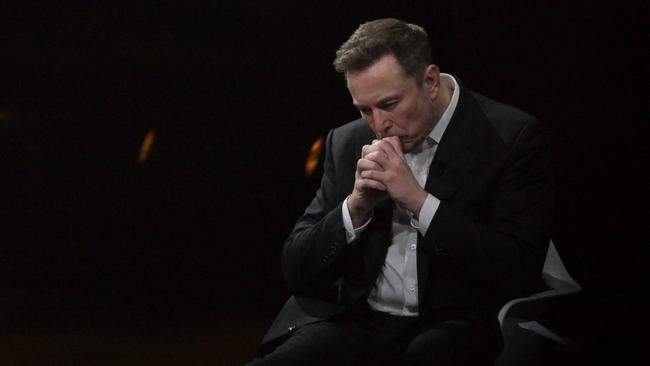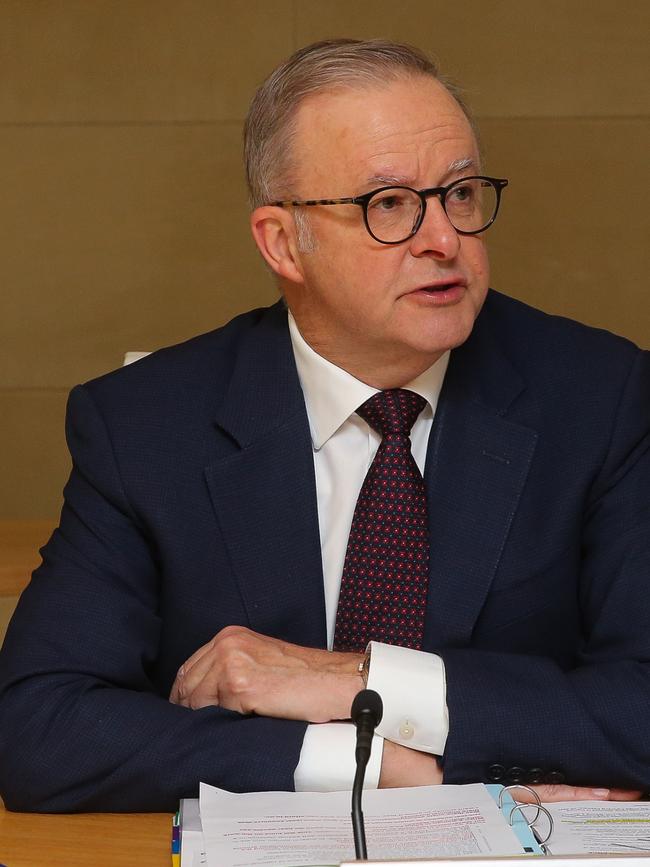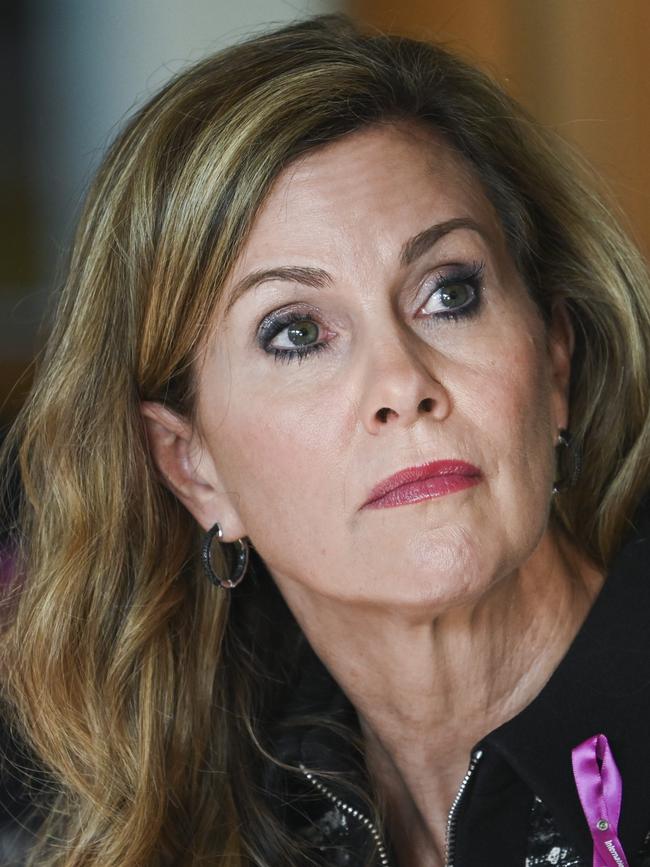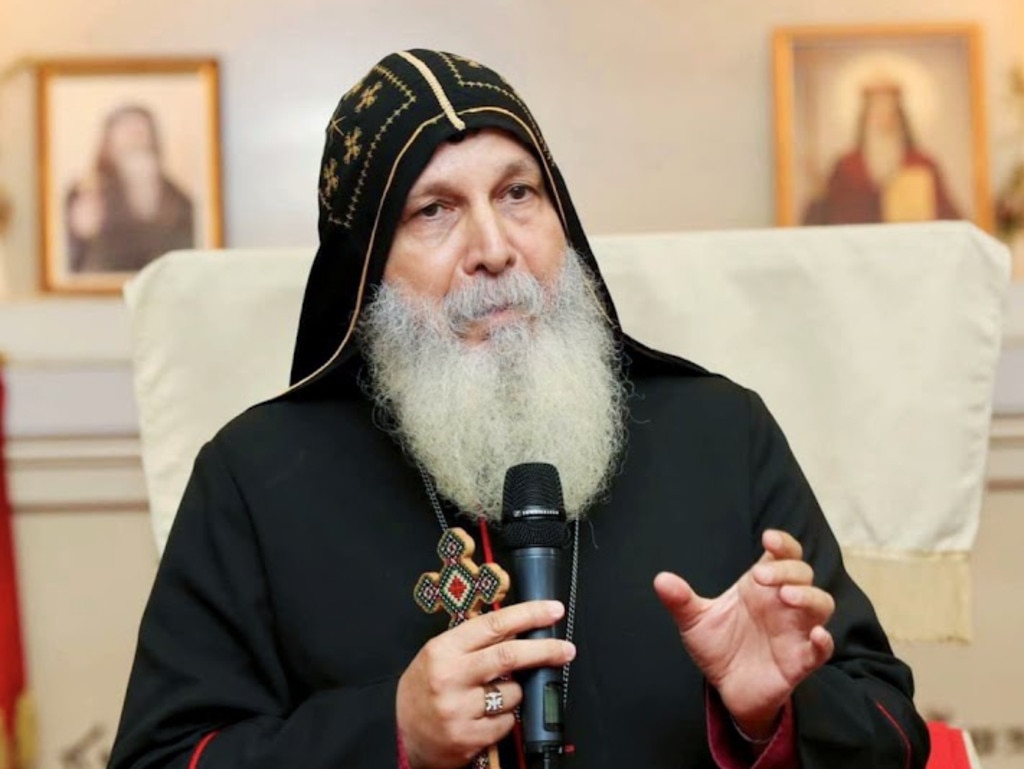
The government has since launched a bizarre campaign against the X owner, fining the social media platform more than $700,000 a day for refusing to remove a video pending an appeal.
It’s an embarrassing episode for Australia, reminiscent of the country’s gross mismanagement of the Covid-19 pandemic that caused immense socio-economic and health damage, the full extent of which won’t be understood for generations.
We redeemed ourselves to some extent last year by emphatically rejecting the Indigenous voice referendum, but the government now appears determined to humiliate the country once again by pursuing Musk and attacking freedom of speech in the process.
“The degree to which Australia has been taken over by the woke virus, it’s scary … This place has lost its mind in many ways,” US radio host Clay Travis told millions of listeners.
The platform agreed to hide the video in Australia, but that wasn’t enough for the eSafety Commissioner (a former Twitter employee) because technologically savvy Australians could evade the national firewall, potentially exposing themselves to non-approved images.
Quite reasonably, Musk has objected to the government’s attempt to de facto censor social media posts globally.
Will most of us be fine with dictatorships making periodic demands to X to censor politically inconvenient violence in their own countries?
The dispute can’t be about the actual video; this was tame compared with the violence watched routinely by teenagers online.

For almost two weeks I haven’t been able to get out of my head the horrific, grisly video of the 37-year-old man who burnt himself to death outside the Manhattan court where Donald Trump was facing trial. The man was taken on a stretcher into the ambulance in full view of scores of citizen photographers. In February another man died after setting himself on fire in a similar protest outside the Israeli embassy in Washington.
If the concern were really about the potential for an image to cause wider damage or incite violence, surely a sudden jump in the number of graphic videos of hopeful martyrs butchering themselves in public would be greater grounds for executive action?
You can watch footage of president John F. Kennedy’s head being blown off by a gunshot wound as much as you like, but not a peep about any of these in Canberra, or the US for that matter.
If the government were genuinely concerned about limiting actual harm from social media posts, this would be understandable. But this is an issue of power and politics: the opportunity to trigger a pathetic fight with an “evil foreign billionaire”, the opportunity to foist pernicious new censorship laws on well-meaning citizens.
The trend reflects a depressing loss of faith in free speech and a decline in respect for individual rationality and decency among the so-called liberal democracies of the world that accelerated dramatically during the pandemic.
Censorship should be regarded as a more polite term for stamping out misinformation, disinformation and malinformation (facts that could undermine the official narrative). It has now become pervasive and often sinister.

The Global Disinformation Index, for example, an obscure not-for-profit based Britain and funded by numerous Western governments already, covertly advises businesses globally on who they can trade or advertise with, scanning the internet frequently to blacklist any firms that might promote what GDI calls an “adversarial narrative”.
British-based media business UnHerd recently discovered it had been given a low rating for publishing articles during Covid-19 by eminent scientists that were critical of the lockdown response. Whether it be through government bureaucrats, such as the comically named eSafety Commissioner, or covertly through the army of partners and think tanks that influences business, governments are slowly chipping away at our right to share wrong or even unhelpful information. It may be slow at first, but it will surely accelerate and consolidate with each new crisis.
Despite this, the censorship urge is understandable. The bureaucracies of most developed nations, along with their cheer squads in the universities, were humiliated during the pandemic. The new disinformation industry is the end result, driven almost entirely by bureaucrats and academics who seem far removed from the democratic process.
The drafters of the US constitution put free speech first in the bill of rights because all the others depended on it. It’s not only the right of a person to speak but the right of others to listen and learn.
Strictly speaking, Australians don’t have freedom of speech (Victoria had the most extensive bill of fundamental rights in the country). The parliament can pass almost any law, no matter how harebrained.
That means we should be even more vigilant about the potential for government excesses during real or imagined crises. The misinformation bill would be a disaster for Australians’ long-term freedom of expression.
Australia once had a proud history of pioneering social legislation. If the powerful forces demanding increased censorship prevail, they have tarnished that record.








For a brief moment last week Anthony Albanese became Australia’s most recognisable Prime Minister in recent history. His attack against tech billionaire Elon Musk – demanding X take down footage of the Wakeley terror stabbing – triggered a wave of online ridicule and condemnation that went viral.